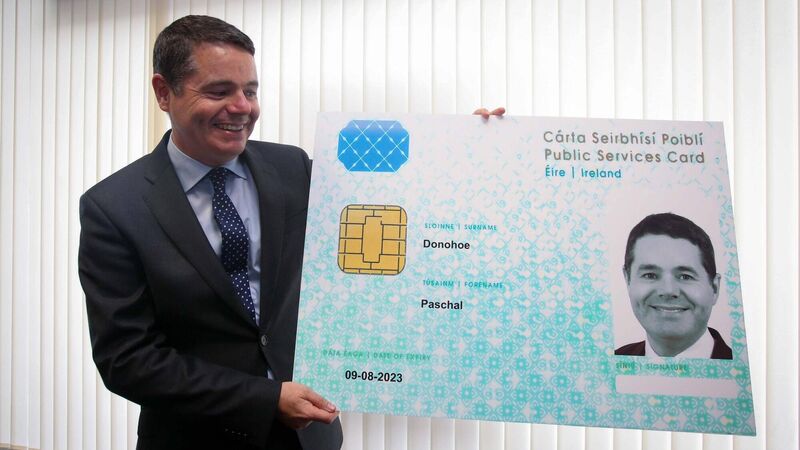Department drops appeal regarding legality of Public Services Card

The then Minister for Public Expenditure and Reform, Paschal Donohoe, with a Public Services Card in 2016. The DPC had ruled that the card is illegal in terms of being required to access public services other than that of the Department of Social Protection. Photo: Gareth Chaney Collins
The Department of Social Protection has withdrawn its appeal challenging a Data Protection Commission ruling that the Public Services Card is illegal.
The DPC announced this morning that the matter has been resolved, and the Department has acknowledged that the card cannot be made a mandatory requirement for accessing public services “in the absence of legislation”.











